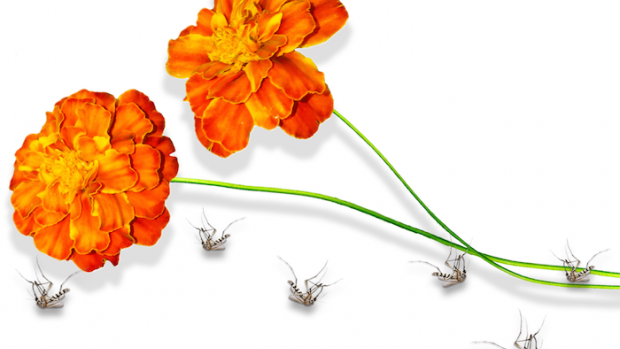Zika Fix May be as Close as a Common Flower and a Pot of Boiling Water

As half a million people head to Rio de Janeiro for the Olympic Games, there’s more hovering over the city than the usual pollution—it’s the threat of the mosquito-borne Zika virus, against which Brazil is waging war with synthetic pesticides, inspections, and transgenic mosquitos that prevent the insects from reproducing.
As concern about the virus increases in the United States, researchers at New York University Tandon School of Engineering are experimenting with an altogether different solution to eliminate the Zika-carrying Aedes aegypti mosquito, one so clever and effective it could only have come from nature itself.
Mark Green, professor of chemical and biomolecular engineering at NYU Tandon, has long studied the chemicals produced by some plants to protect themselves from insect damage. These plant byproducts can be synthesized to create potent insecticides—notable examples are pyrethrins, which are derived from a type of Chrysanthemum flower and used as both an insecticide and insect repellent.
~Professor Green
Green, along with a team of students, discovered that the essential oil of the Mexican Marigold plant, Tagetes minuta, is a potent larvicide when added to standing water, which is where Aedes aegypti and other mosquitos lay their eggs. Even in fairly small amounts—40 parts per million—the oil kills Aedes aegypti larvae for at least 9 days, according to findings first published in the Journal of the American Mosquito Control Association in 1991.
Green explained that Aedes, which also spreads dengue, yellow fever and chikungunya viruses, is particularly susceptible to this type of treatment, as it is a local, rather than long-range, vector. “This mosquito bites where it’s born, so by treating standing water in an area, you can effectively eliminate that population,” said Green. He noted that such natural pesticides are safer for people and the environment than synthetic versions. “You could make this yourself and use it around the yard, just by boiling the plant and treating any standing water,” he said.
Despite the effectiveness of the plant oil against mosquito larvae, marigolds have never been cultivated commercially for this purpose. As demand for pesticide skyrockets in the U.S. and elsewhere in anticipation of Zika’s spread, Green urges a revival of this research. “These plant chemicals are the product of hundreds of millions of years of evolution, as plants learned to defend themselves against similar insects,” said Green. “Why shouldn’t we take advantage of that intelligence to protect ourselves?”




